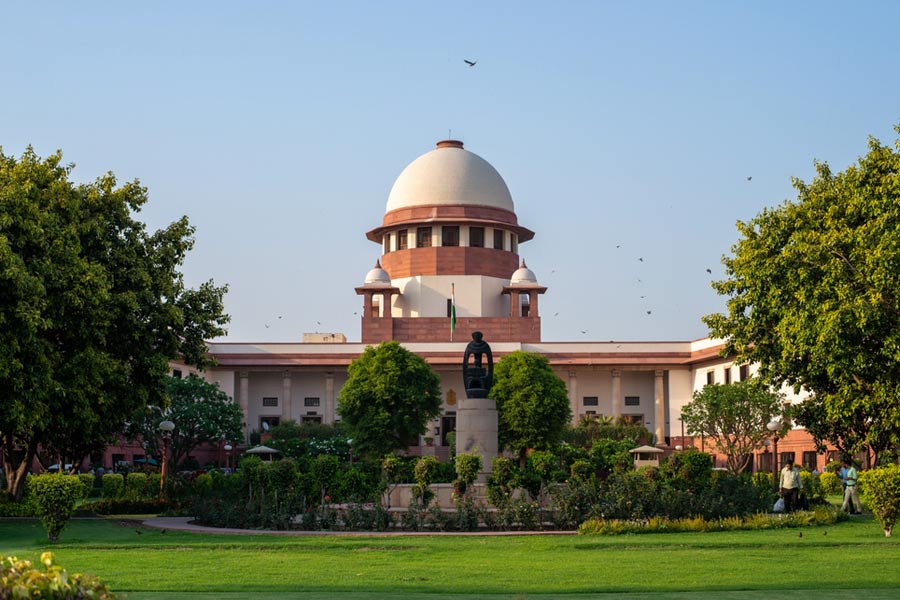The Supreme Court on Friday told Calcutta High Court that it cannot “preach” and its recent observation that adolescent girls should control their sexual urges was “highly objectionable and unwarranted”, and violated the fundamental rights to life and personal liberty of girls.
Taking suo motu cognisance of the October 18 judgment of the high court in a rape case involving a child under the Pocso Act, the bench of Justices Abhay S. Oka and Pankaj Mithal asked the Supreme Court registry to obtain a soft copy of the verdict and place before it the printed version by the next date of hearing.
The bench said the high court had made “sweeping” remarks that were “irrelevant” and that judges were “not expected to express their personal views” on such matters.
The court appointed senior advocate and former additional solicitor-general Madhavi Divan as amicus curiae to assist it in the matter. The bench also issued a notice to the Bengal government through standing counsel Astha Sharma, seeking its response.
The court further issued notices to the accused and the victim for their responses.
The Supreme Court passed the following written order:
“…The Registry is directed to procure a soft copy of the CRA (DB) No. 14 of 2023 from the High Court of Calcutta and place printed version thereof on record.”
“The Registry to issue notice to the appellant in the aforesaid Criminal Appeal as well as to the victim girl. The notice is made returnable on 4th January, 2024. The learned counsel appearing for the State of West Bengal accepts notice, who is personally present in the Court,” the bench said.
“We have carefully perused the impugned judgment dated 18th October, 2023, passed by the Division Bench of the High Court. The issue before the High Court was about the legality and validity of the judgment and order dated 19th/20th September, 2022, by which the appellant before it was convicted for the offences punishable under Sections 363 and 366 of the Indian Penal Code, 1860 as well as Section 6 of the Protection of Children from Sexual Offences Act, 2012 (Pocso Act).
“As per the order of the Hon’ble the Chief Justice of India, suo motu writ petition under Article 32 of the Constitution of India has been initiated mainly due to sweeping observations/ findings recorded by the Division Bench of the High Court of Calcutta in the impugned judgment.
“Only by way of an illustration, we are reproducing the observations made in paragraph 30.3 (of the high court judgment) as under: ‘… It is the duty/ obligation of every female adolescent to: (i) Protect her right to integrity of her body. (ii) Protect her dignity and self-worth. (iii) Thrive for overall development of herself transcending gender barriers. (iv) Control sexual urge/ urges as in the eyes of the society she is the loser when she gives in to enjoy the sexual pleasure of hardly two minutes. (v) Protect her right to autonomy of her body and her privacy.’”
The apex court said: “In the appeal against conviction, the High Court was called upon to adjudicate only on the merits of the appeal and nothing else. But we find that the High Court has discussed so many issues which were irrelevant. Prima facie, we are of the view that while writing a judgment in such an appeal, the Hon’ble Judges are not expected to express their personal views. They are not expected to preach.
“After having carefully perused the impugned judgment, we find that many parts thereof including paragraph 30.3 are highly objectionable and completely unwarranted. Prima facie, the said observations are completely in violation of the rights of the adolescents guaranteed under Article 21 of the Constitution of India. The learned counsel appearing for the State seeks time to ascertain whether the State has preferred any appeal against the said judgment or the State intends to do so.”











